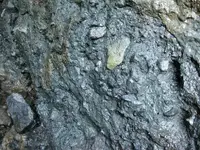Klondikeike said:
Hey Russau...
Not sure what you're saying.. but the 1872 General Mining Laws, states ".....all citizens of the United States have the right to explore, locate and extract precious metals...." "......not withstanding any areas withdrawn from exploration....such as National Parks, Monuments and other areas for the public benefit.... "
As a recreational miner you DO have the RIGHT to explore, locate and extract precious metals....in areas not removed from exploration....
Klondike...
What he's referring to is something called the "prudent man" rule, which is a legal precedent set sometime back. The laws were originally set up to open up the west and were much needed at the time as the rules and laws varied from district to district. There were shootings, claimjumping, misfiled claims, boundary disputes, etc., very very hectic times..... so the mining laws were set up for a logical order that everybody would adhere to file a claim.
One of the precendents is the prudent man rule.
Quote from
http://www.blm.gov/wo/st/en/info/regulations/mining_claims.html
"Holders of mining claims and sites located within lands later withdrawn from mineral entry must prove their right to continue to occupy and use the land for mining purposes. The owner must demonstrate they contain a discovery of a valuable mineral deposit and/or are used and occupied properly under the General Mining Law, as of the date of withdrawal and as of the date of the mineral examination. Mining claims or sites whose discovery or use or occupation cannot be demonstrated on the date of withdrawal or the date of mineral examination have no valid existing rights and will be contested by the Department.
1. The Prudent Man Rule was first defined in Castle v Womble, 19 LD 455 (1894), where the Secretary of the Interior held that: "Where minerals have been found and the evidence is of such a character that a person of ordinary prudence would be justified in the further expenditure of his labor and means, with a reasonable prospect of success, in developing a valuable mine, the requirements of the statute have been met."
2. The Marketability Test was first defined by the Secretary of the Interior in Solicitor's Opinion, 54 ID 294 (1933): "...a mineral locator or applicant, to justify his possession must show by reason of accessibility, bona fides in development, proximity to market, existence of present demand, and other factors, the deposit is of such value that it can be mined, removed, and disposed of at a profit."
So in order for a mining claim to be valid, one of the basic premises is there has to be a deposit of economic value present that a prudent man would expend his time and money into and make a profit.
When the word "recreational" comes into play, it throws the 1872 mining laws right out the window.
Recreational miners are just that. Out for some fun. Nothing wrong with that at all, but you can't have it both ways.
The 1872 mining laws cover prudent men looking to enrich themselves, better the economy, start a business, employ people, etc. in other words expand the economy, expand the country, start new population centers, etc.
If through no fault of your own you get hauled into court for whatever reason.... you will lose your case just by being "recreational", as the 1872 mining laws do not apply to you.
Sure, you can go out and prospect and have fun doing it. But don't expect the mining laws to be some kind of safety net for you if you intend on being strictly recreational. Wouldn't be prudent













 Klondikeike I have a mound of hard pann mixed with clay that i want to process on a small scale, could you tell me what equiptment you are useing, tromel size ect. to process a tonne per hour.
Klondikeike I have a mound of hard pann mixed with clay that i want to process on a small scale, could you tell me what equiptment you are useing, tromel size ect. to process a tonne per hour.


 The 1872 Mining Laws are codified ,also fortified under the Nixon administration, to protect the rights of a Prospector and a Miner and not a single word of recreational are contained within and therefore assumption of additional coverage is ludicris and non-existant as all are completely different.Also proven up under the codified Prudent Man Rule -
The 1872 Mining Laws are codified ,also fortified under the Nixon administration, to protect the rights of a Prospector and a Miner and not a single word of recreational are contained within and therefore assumption of additional coverage is ludicris and non-existant as all are completely different.Also proven up under the codified Prudent Man Rule - 